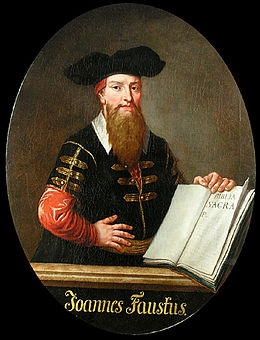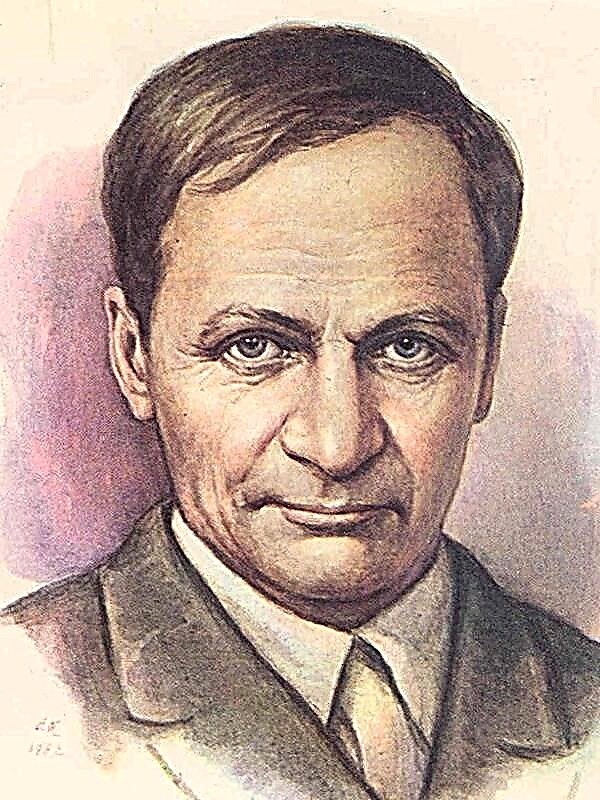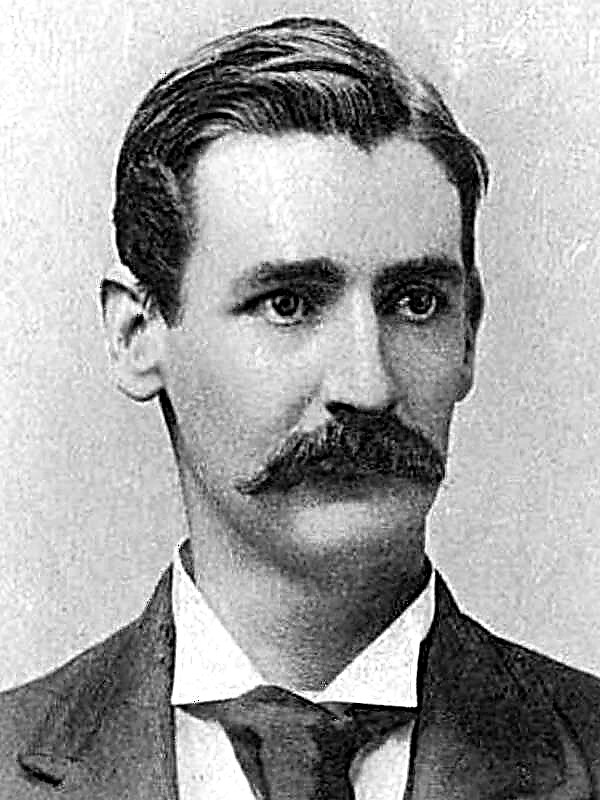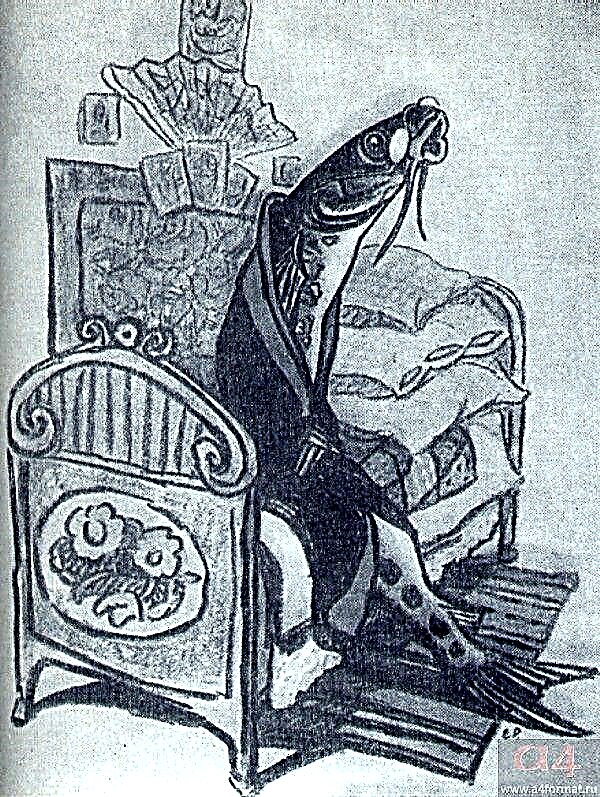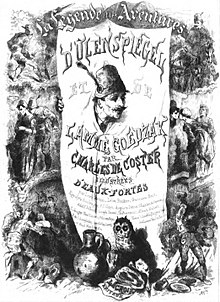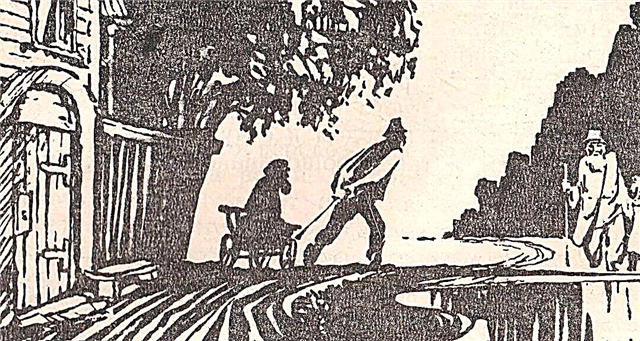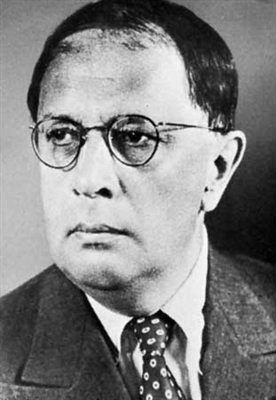Florent returned to Paris, from where seven years ago, in December 1851, after barricade battles in the night city he was sent into exile, to the hell of Cayenne. He was taken only because he wandered around the city like a lost man and his hands were covered in blood - he tried to save a young woman who was wounded before his eyes, but she was already dead. Blood on the hands seemed to the police enough evidence. With two comrades who soon died on the way, he miraculously fled from Cayenne, wandered around Dutch Guiana and finally decided to return to his hometown, about which he had dreamed all seven years of his torment. He hardly recognizes Paris: on the very spot where the once bloodied woman lay whose blood killed Florent, today stands the Central Market, the “belly of Paris” - fish, meat, cheese, tripe, rows of food, the apotheosis of gluttony, above which, when mixed, the smells of cheeses, sausages, butter, the unobtrusive stink of fish, light clouds of floral and fruity aromas float. Starved and haggard, Florent nearly faints. It was then that he met the artist Claude Lantier, who was rude but friendly in offering his help to him. Together they go around the market, and Claude introduces the newcomer to the local sights: here is the devil Marzolen, found in cabbage, and lives on the market; here is a nimble Kadina, also from a foundling, she was sheltered by a merchant; here is the finished picture - piles of vegetables and greens ... Florent can no longer endure this oppressive magnificence. Suddenly it seems to him that he recognized an old friend: it is, it is Gavar, who knew both Florent and his brother well. He changed the apartment, and Florent sent to a new address.
... From an early youth, Florent took all the care of his brother: their mother died when he just began to study law in Paris. Having taken the twelve-year-old Kenya to himself and desperately struggling with poverty, Florent tried to teach something to his little brother, but he mastered the cookery much more successfully, which was taught to him by the nearby shopkeeper Gavar. Kenya was a great cook. After the arrest of his brother, he got a job with their uncle Gradel, became a successful sausage maker, married the magnificent beauty Lisa - the daughter of Makkarov from Plassan. A daughter was born. Kenya recalls Florent less and less, considering him dead. His appearance in the sausage makes Kenya and Lisa afraid - however, Kenya immediately invites his brother to live and stay with them. Florent is weighed down by parasite and forced idleness, but cannot but admit that he is gradually recovering in this house, which is smelling of food, amidst fat, sausages, and melted lard. Soon, Gavar and Kenya find him the place of the overseer in the pavilion of sea fish: now it is his responsibility to monitor the freshness of the goods and the honesty of the traders in the calculations. Meticulous and incorruptible, Florent embarks on this work and soon gains general respect, although at first his gloom and restraint (which hid only shyness and meekness) scared away the market patrons. And the eternal rival of Lisa’s sausage-maker, the second beauty of the market - Louise Meguiden, nicknamed Normandy - even looks at him ... Florent is messing around with her little son Mush, teaching him to read and write, and a little foul language with an angelic appearance is attached to him wholeheartedly. Drawing into the satisfying, spicy, noisy life of the market, Florent agrees with Claude, who comes here to write etudes, and visits the Lebigre's pub in the evenings, where men gather in the evenings to have a drink and have a meal. They are talking more and more about politics: the owner of the vegetable marrow, the silent Lebigre, sometimes hints at his participation in the events of 1848 ... The home-grown Jacobian Charvet, the long-haired private teacher in a shabby frock coat, and the angry hunchback evaluator Logr, and the peddler Lacaille, and the peddler Lacail loader Alexander. They make up the circle of Florent's interlocutors, who little by little ceases to hide their views and increasingly speaks of the need to overthrow the tyranny of the Tuileries ... There are times of Napoleon III - Napoleon the Small. Florent's days are monotonous, but in the evenings he takes the soul away.
The market, meanwhile, lives its full, boisterous life: traders are intriguing, quarreling, gossiping. Normandy scolds her eternal rival Lisa and spreads rumors about her and Florent. It is he who becomes the main subject of contention. The old maid Mademoiselle Sage, eating the remnants of the Tuilerian feasts (they are handed out free of charge on the market), spreads gossip about everyone and everything and for this gets free tidbits. Squabbles, squabbles, skirmishes flare up every minute in the realm of plenty. Florent does not want to notice all this - he is already absorbed in the thought of the uprising, which he is discussing with Gavar and new friends in the Lebigre's pub. These conversations give their monotonous life, passing in the neighborhood of a gigantic market, a new meaning and sharpness. Mademoiselle Suger tirelessly gossips about the revolutionary sentiments of the new fish ranger, these rumors reach Lisa, she begins to hint to her husband that it’s good to get rid of Florent, and soon the whole market is sure that Florent is a dangerous and unrepentant “red”. And without that having made enemies with honesty and directness, he becomes an outcast in the market and feels himself a man only among like-minded people, guests of Lebigre, who are listening to him.
... Marjolen and Kadina grow together in the market, who do not know their parents, and since childhood have been sleeping in the same bed at the aunt of the aunt Santimess. Their childhood friendship imperceptibly turns into love - or what seems to them to be love, for by the age of seventeen Gavara Marzholen's assistant is simply a beautiful animal, and the fifteen-year-old Kadina is just as adorable and the same thoughtless animal. She sells flowers, runs around the market, and here and there she intercepts another yummy. One day, the beautiful Lisa decides to go to the house of Gavar and talk with him about the dangerous political disputes at Lebigre. She did not find Gavar. Marzholen, rejoicing at the guest, drove her around the shop for a long time, then jokingly tried to hug her - and Lisa with all his might hit him between the eyes with her fist. The boy collapsed to the floor, cutting his head to the stone counter. Fortunately, he did not remember anything when he came to himself. He was sent to the hospital, but after the fall he became a complete idiot, finally turning into a jubilant, well-fed animal. For Florent and Claude, he becomes a symbol of the market, his soul - or, rather, a symbol of the absence of this soul.
Florent tries in vain to entice Claude into a political struggle. “In politics, you are the same artist as I am,” Claude casually answers, interested only in art. But Gavar is seriously interested in politics and begins to defiantly carry a gun with him, talking about the victory of the Republicans as a matter solved. Frightened, Lisa, with the blessing of the curator, takes apart Florent's papers in his room and learns that in his pipe dreams, Florent had already broken the city into twenty sectors, at the head of each he foresaw the commander in chief and even painted badges for each of the twenty detachments. This terrifies Lisa. Meanwhile, the old woman Sage learns from an accidental slip of the tongue of her little daughter Kenya that Florent is a runaway convict. This rumor with the speed of fire covers the entire market. The terrified Lisa decides to finally go to the prefecture with a denunciation to her brother-in-law, who until now has been passing off the whole market as a cousin. Here is a gloomy bald gentleman and informs her that the police commissars of three cities at once informed about the return of Florent from hard labor. His whole life, all his work in the Central Market was thoroughly known to the police. The prefecture was slow only because it wanted to cover the whole "secret society". Floran was also reported to Floran by Sage, and even apprentice Kenya Auguste ... Lisa understands that her husband is beyond suspicion and, therefore, out of danger. Only here she becomes clear all the meaninglessness of her own denunciation. Now she can only wait for Florent, who has never offended a pigeon, to be arrested.
And so it happened. Take and Gavar, who flaunted a gun, and now scared to death. Immediately after the arrest in his house, a fight begins for his condition. Florent is taken at her brother’s apartment, but Florent refuses to say goodbye to Kenya, who is busy making black pudding, because he is afraid to feel himself and upset him. At the trial, Florent is credited with more than twenty accomplices, of which he barely knows seven. Laura and Lacaille acquitted. Florent and Gavar were sent into exile, from where this time they will not be able to return.
Remembering a friend, Claude Lantier walks around the jubilant, gigantic Central Market. The sparkling, well-fed white beauty Lisa Kenyu lays out ham and tongues on the counter. Old Woman Sage walks between the rows. Normandy, who had just married Lebigre, greeted her former rival Lisa in a friendly manner. Claude is surrounded by the triumph of the womb, everything around is breathing fat health - and the hungry artist mutters through his teeth: “What, however, are all these decent people scoundrels!”



